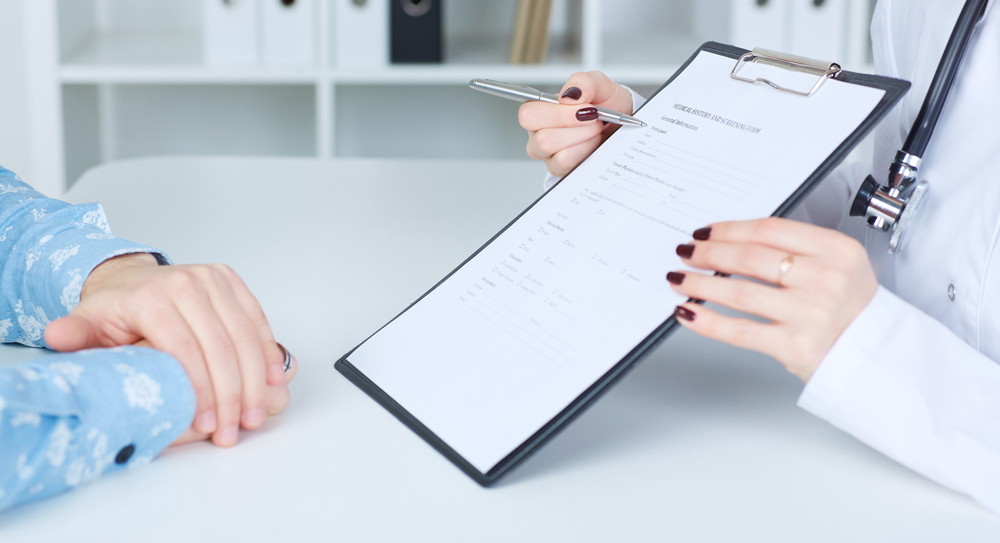
An Entirely New Approach to the Treatment of Depression
This treatment for Depression and Major Depressive Disorder (MDD) is Drug-Free and Non-invasive. It’s called MeRT.
Simply stated, we use magnetic fields to stimulate and balance brain function, guided by very sophisticated imaging and diagnostics.
MeRT to Treat Major Depressive Disorder (MDD)
MeRT, which stands for Magnetic e-Resonance Therapy, uses rTMS (Repetitive Transcranial Magnetic Stimulation). We have used MeRT® successfully to treat Depression and MDD and for those who did not respond well to medications or tolerate them well due to side effects.
Clinically depressed patients have distinct markers that are visible in their EEG studies. We generally see an imbalance in brainwave activity between the left and right hemispheres, which is called asymmetry. The MeRT protocol first identifies the asymmetry and then strengthens the brainwave activity, which can reduce depression symptoms.
The Mayo Clinic reports that over three million people are diagnosed with Major Depressive Disorder every year, and far more with clinical Depression. They also report that new research confirms that factors that may contribute to Depression cause changes in brain function, including the altered activity of certain neural circuits in the brain.
Contact our
New Patient Coordinator
Or fill in the form at the bottom of the page for more information.
MeRT For Depression
We know how serious Depression can be and that it can affect people of all ages.
We understand how you are feeling and know how tough it can be. Some medications can help, but some don’t respond as well, can’t handle the side effects, or just don’t like having to take them. We offer an entirely different approach to treating Depression. It’s noninvasive, drug-free, and lasting. There is hope.
Depression can cause a loss of interest and a persistent feeling of sadness. Also referred to as Major Depressive Disorder or Clinical Depression, it affects your thoughts, feelings, and behavior. Plus, Depression can lead to a wide variety of emotional and physical problems. For example, you may have difficulty performing normal day-to-day activities, and sometimes you may feel that life isn’t worth living. It’s something you can’t simply “snap out” of.
MeRT for depression
What is MeRT?
MeRT is a tailored, highly individualized form of TMS or Transcranial Magnetic Stimulation. In simpler terms, we use magnetic waves to stimulate specifically targeted areas of the brain that have been found to not be communicating or functioning optimally.
It is painless and completely non-invasive. You are fully conscious during treatment, and no drugs or anesthesia are involved. It’s simply magnetic waves that stimulate and balance the neurological functioning of your brain.
This is determined through sophisticated diagnostic tools and imaging and is used to plan a tailored treatment approach just MeRT is an emerging technology that aims to improve brain function and communication.
Studies Prove TMS is Effective for Depression Treatment
TMS — or, more specifically, rTMS (repetitive transcranial magnetic stimulation) is a vital part of MeRT treatment for depression. Many studies have shown the effectiveness of rTMS in reducing depression symptoms, with many more ongoing. Here are some of the meta-analyses and reviews of these studies:
TMS Should Be Considered as First-Line Treatment For Moderate to Severe Major Depressive Disorder, in Psychiatric News, October 2022.
The article’s author, Richard A. Bermudes, reviewed a decade’s worth of studies on the effectiveness of TMS, and wrote this:
“As I read the [APA] guidelines recently and considered the number of new outcome studies conducted with TMS, I believe TMS should be considered, in addition to pharmacotherapy and psychotherapy, as a first-line treatment for patients with moderate to severe major depressive disorder.”
A retrospective chart review to assess the impact of alpha- guided transcranial magnetic stimulation on symptoms of PTSD and depression in active-duty special operations service members, 21 June 2024.
“This data provides a demonstration of significant reduction in PTSD and depression symptoms and safety with the application of a-rTMS in active-duty special operations military personnel. Expansion of targeted neuromodulation programs could be impactful for military and civilian populations.”
Efficacy of repetitive transcranial magnetic stimulation (rTMS) adjunctive therapy for major depressive disorder (MDD) after two antidepressant treatment failures July 2023.
“Several meta-analyses proved the efficacy of rTMS treatment in MDD, which is comparable to pharmacotherapy, and may have even better tolerability. Our results strengthened that rTMS is associated with clinically relevant antidepressant effect in TRD as well, and may be a beneficial tool in the add-on treatment of patients with TRD. Furthermore, rTMS adjunctive treatment to antidepressants was found to be specifically effective in achieving full remission.”
Transcranial magnetic stimulation (TMS) for major depression: a multisite, naturalistic, observational study of quality of life outcome measures in clinical practice, July 2013.
This study found: “Conclusion: These data confirm that TMS is effective in the acute treatment of MDD in routine clinical practice settings. This symptom benefit is accompanied by statistically and clinically meaningful improvements in patient-reported QOL [quality of life] and functional status outcomes.”
Transcranial magnetic stimulation (TMS) for major depression: a multisite, naturalistic, observational study of acute treatment outcomes in clinical practice, Carpenter et al, 2012.
This study found as its conclusion: “These data indicate that TMS is an effective treatment for those unable to benefit from initial antidepressant medication.”
Repetitive Transcranial Magnetic Stimulation for the Treatment of Resistant Depression: A Scoping Review. June 2022.
“Overall, 16 out of the 17 studies suggested that rTMS treatment was effective, safe and tolerated in TRD. For patients with TRD, rTMS appears to provide significant benefits through the reduction of depressive symptoms…”
The association between sample and treatment characteristics and the efficacy of repetitive transcranial magnetic stimulation in depression. Oct 2022.
“Data from nearly 3000 patients from 65 randomized controlled trials were included in this meta-analysis. rTMS was confirmed as efficacious in treating depression when looking at symptom reduction, response and remission.”
Efficacy of repetitive transcranial magnetic stimulation in treatment-resistant depression: the evidence thus far, August 2019.
“rTMS is rapidly gaining popularity as a treatment modality for depression. There is growing evidence to support its use in patients with depression as a monotherapy or as adjunct with pharmacotherapy. Additionally, rTMS has been found to be safe and effective in pregnant patients and elderly patients…”
Use of Transcranial Magnetic Stimulation for Depression, May 2019.
“The clinical efficacy of TMS as an antidepressant has been well established. TMS is an innovative and promising treatment modality for patients with TRD [treatment-resistent depression].”
Experimental depression treatment is nearly 80% effective in controlled study, October 28, 2021.
“In a double-blind controlled study, high doses of magnetic brain stimulation, given on an accelerated timeline and individually targeted, caused remission in 79% of trial participants with severe depression.
“A new type of magnetic brain stimulation brought rapid remission to almost 80% of participants with severe depression in a study conducted at the Stanford University School of Medicine.
Depression Treatment Testimonial
Listen to how MeRT Treatment has helped Sean.
MeRT has been shown to be successful in treating brain conditions that contribute to Depression.
Psychiatric News: TMS as a First-line Treatment for Major Depressive Disorder
An October 2022 issue of the Psychiatric News featured an article providing evidence that TMS (a key component of MeRT treatment) should be considered as first-line treatment for moderate-to-severe Major Depressive Disorder.
Richard A. Bermudes, MD, wrote the article where he reviewed a decade’s worth of studies on the effectiveness of TMS. Per Dr. Bermudez:
As I read the [APA] guidelines recently and considered the number of new outcome studies conducted with TMS, I believe TMS should be considered in addition to pharmacotherapy and psychotherapy as a first-line treatment for patients with moderate to severe major depressive disorder.”
Read the entire article on the Psychiatric News website.
Suicide is the tenth leading cause of death in the US. If you or someone close to you is feeling suicidal, call the National Suicide Prevention Lifeline at 1-800-273 TALK (1-800-273-8255).
Symptoms of Depression, Clinical Depression and Major Depressive Disorder
Depression, also called Clinical Depression, Major Depressive Disorder, or Treatment-Resistant Depression, can have a range of symptoms and degrees of severity for different people.
- Feeling overwhelmingly sad or hopeless
- Difficulty completing everyday activities
- Feeling depressed or down for longer than two weeks
- Emotional outbursts
- Weight gain or weight loss
- Agitation or irritability
- Performance issues at work or school
- Lowered self-esteem
- Lack of interest in relationships, work, or social activities
- Feelings of isolation
- Extreme fatigue — physical and/or mental
- Sleeping too little or too much, or other sleep issues
- Difficulty concentrating or remembering things
- Feelings of guilt or worthlessness
- Dwelling over past events or failures
- Anxiety
- Headaches, neck or back pain
- Thoughts of suicide or suicide attempts
MeRT for depression
How MeRT Can Help
MeRT is a non-pharmaceutical and non-invasive treatment that has been used successfully to treat Depression, including depression that has not responded to medication or other therapies.
While TMS is a more generalized approach to magnetic stimulation, usually targeting a single location in the brain with one frequency, MeRT is much more tailored to address your specific brain patterns.
With MeRT, we use very sophisticated diagnostics and imaging to customize treatment protocols for each individual. We tailor these based on the location, frequency, and amount of power used by the magnet, specific to each person’s unique condition. MeRT has been shown to improve brain communication and synchronization and can lead to significant and long-lasting improvements.
Studies have shown altered brain wave oscillations in patients suffering from conditions such as Depression and Major Depressive Disorder (MDD) as well as other conditions. MeRT treatment protocols involve the use of a magnetic field to balance and stimulate brain function.
The objective of MeRT is to improve brain communication and synchronization, leading to significant and long-lasting improvements.
The U.S. Department of Defense did the initial MeRT research on veterans returning from combat. This article, published in Defense One, further explains this research and the benefits MeRT had on those who suffered from TBI, PTSD, and Depression. Many more studies have been completed in the private sector on other conditions.
Contact our
New Patient Coordinator
Or fill in the form at the bottom of the page for more information.
Hear it from the Patients!
“My experience at the Brain Treatment Center was life-changing. I struggled through years of sleeplessness, constant worry, and struggle with everyday life. Halfway through my first treatment plan, my spirit was revived.
“My loved ones, acquaintances, and people I met started to comment on my positivity and overall demeanor. I went from losing hope to cherishing every moment.
“I would urge anyone who is struggling with head injury, depression, PTSD, or any type of psychological struggle(s) to pick up the phone and inquire. Your best days are still to come.”
John G.
“For me, depression was the constant feeling of, ‘I want to quit’ and retreat to my home, except I already would be home. MeRT helped me shed this feeling in less than two weeks. I couldn’t believe I had spent so many years feeling this way!”
MeRT Patient
“Everything changed when I started treatment. Within two weeks, I was sleeping better. I was off all 12 of my meds that I was on when I started treatment, and I was starting to enjoy life again.
“After the first month, I was socializing with people again, I was able to work out for the first time in years, and I started to help my wife with the bills and our budget. A conservative estimate is that I have had a 60 – 70% reduction of the symptoms and have a whole new lease on life.
“I can focus, feel good about myself, feel confident, and laugh again. Most importantly, I can feel the love for and from my family again. I have never met a group of people who truly are solely focused on helping people feel human again. Spend a day here, and you will see a miracle.”
MeRT Patient
“I just finished six weeks of their specialized form of TMS treatment, and it is life-changing. If your depression or anxiety has been resistant to medications, therapy, or other forms of treatment, I highly recommend the Brain Treatment Center.”
Mary Ann E.
“I felt like I was alone even though I was surrounded by love and care. It was just a cloud that would linger over my life every now and again. BTC helped me understand what was going on in my head, and after a month of treatment, I was grateful to be DEPRESSION FREE and MEDICATION FREE for the first time in my life.”
MeRT Patient
Patient“For anyone suffering from depression, anxiety, and other symptoms, I highly recommend trying MeRT. My adult son, who has suffered from both problems his entire life and has been on medication, realized a positive change after the first visit. We saw dramatic improvement after each visit. This technology is truly a magic bullet.”
Harold H.
ExecutiveOur Medical Director, Neurologist Dr. Miller
Dr. Spencer O. Miller, a Neurologist in Dallas, Texas, is the owner and Medical Director of Brain Treatment Center Dallas. He received his medical degree from the University of Mississippi School of Medicine and has been in practice for 12 years. He spent five of those years in the US Air Force, where he saw many brain injuries, including soldiers suffering from PTSD and TBI.
Dr. Miller now specializes in MeRT (Magnetic e-Resonance Therapy) treatment of traumatic brain injury, depression, post-traumatic stress disorder, dementia, autism, and multiple other brain disorders at his clinics, the Brain Treatment Centers in both Dallas and Plano.
Dr. Miller is also affiliated with Baylor University Medical Center, where he specializes in stroke, headache medicine, traumatic brain injury, post-traumatic stress disorder, and seizure. Additionally, he is associated with the Texas A&M Science Center College of Medicine.
He also speaks multiple languages, including Spanish.
Contact Our New Patient Coordinator for More Information
Our New Patient Coordinator is here for you. During your consultation, she will take the time to answer any questions that you may have, listen to your concerns, and carefully explain all the details and information you need.
If, after talking to her, you are interested in further exploring whether you could benefit from MeRT, the next step would be to schedule an EEG and a consultation with our doctor.
With thorough diagnostics, the doctor can show you what is happening in your brain and what may be causing the issues. At this point, we can determine whether you (or your loved one) may benefit from MeRT Treatment, and you can decide if you would like to move forward.
Call our New Patient Coordinator
Or fill in the form below.
Life Can Be Better
You or your loved one can be at peace and enjoy life. With so many successful treatments of a wide range of neurological conditions, we encourage you to explore the possibilities of MeRT Treatment. It can have a lasting impact — and an improved quality of life!


